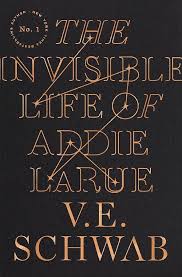Chapter XIII
byChapter XIII opens on July 29, 1872, as Addie journeys toward Berlin, Germany, aboard a train. She sits in the dining car, sipping coffee and reflecting on the extraordinary accomplishments of humankind. As she marvels at the progress of the world around her, her moment of peace is interrupted when the conductor approaches to inquire about her ticket. Pretending to forget it, she attempts to evade him, only to be cornered in a tense situation. Just as the confrontation escalates, Luc appears, stepping in as her husband and effortlessly extricating her from the awkward moment. Their exchange is charged with unspoken tension, hinting at a deeper and more complicated relationship between them, one that goes beyond mere familiarity.
As the train moves forward, Addie tries to distance herself from Luc, attempting to reassert her independence. But Luc, with his uncanny ability to control the situation, transports them into another reality, revealing his power and his inextricable connection to the darkness. They find themselves in Munich, where they prepare for an evening at the opera to watch Wagner’s “Tristan und Isolde.” For Addie, the performance becomes a transcendent experience, one that enchants her with its rich music and deep emotional resonance. However, even as she becomes lost in the beauty of the performance, Luc’s presence lingers in the background, both a comfort and a reminder of the supernatural pact they share. It is in these moments of awe and beauty that Addie grapples with the complexity of their connection, knowing that everything she experiences with him is colored by the shadows of the pact she made.
As the night progresses, their conversation turns philosophical, and Addie finds herself discussing art, talent, and the price of greatness with Luc. He reveals how he has been involved with artists throughout history, making deals where the price for brief flashes of brilliance is the sacrifice of longevity. He speaks of his interactions with Joan of Arc, detailing how his manipulation and subtle wordplay led to the tragic fate she endured. Luc’s casual recounting of these moments makes it clear that his role in such deals is far more complex and insidious than Addie had realized. She begins to understand the full extent of his influence on those who seek immortality or greatness, realizing the devastating cost of those desires.
Reflecting on the evening and Luc’s candid admissions, Addie is torn between the beauty of the music and the dark reality of the artists’ fates under Luc’s influence. She is captivated by the music and the emotion of the opera but cannot escape the thought that every legendary creation comes with a price, one that robs the artist of time and life. Luc’s influence seems omnipresent in the pursuit of greatness, and Addie cannot help but contemplate the true cost of being remembered. Her thoughts linger on the nature of fame, sacrifice, and what it means to leave a legacy behind when that legacy is built on a foundation of darkness and lost time.
Their dialogue in Munich reinforces the story’s exploration of memory, the transient beauty of art, and the eternal struggle between fleeting human experiences and the desire for immortality. Through her reflections and the ongoing interaction with Luc, Addie is forced to confront the duality of her existence. She is caught between moments of breathtaking beauty, like the opera, and the undeniable presence of the shadows that Luc casts over everything. His influence permeates every part of her life, from the smallest interactions to the grandest moments, leaving Addie to wrestle with the notion of whether greatness, in any form, is worth the cost of the sacrifice it demands.


